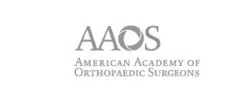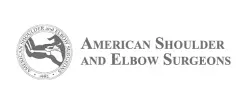Dr. Parsons recently contributed to a study challenging the theory that reverse shoulder replacement results in eventual fatigue and weakness of the deltoid muscle years following surgery. This study was recently published in the Journal of Shoulder and Elbow Surgery.
Because reverse shoulder replacement lengthens the deltoid muscle and increases its capacity to perform work, some surgeons have speculated that this change in the length/tension relationship can lead to progressive eventual loss of deltoid function as the muscle fatigues over years of increased use.
By analyzing the outcomes over time of a large database of patients in a clinical registry of reverse shoulder replacement, Parsons and colleagues determined that while there is a small decline in overhead function of the arm, this decline is only marginally more than would be expected due to the normal aging process. The findings therefore challenge is this long accepted notion and suggest that the functional outcomes of reverse shoulder replacement are well sustained.
Dr. Parsons will also be working with Exactech, Inc (Gainesville, FL) on a predictive modeling tool that will leverage artificial intelligence to help forecast the outcomes that patients can expect from should replacement surgery. This tool will look at parameters like age, diagnosis, general health status, a history of prior surgery, and other factors that can impact outcomes, to predict the final outcomes that patients are likely to achieve from shoulder replacement. This tool will allow patients and surgeons to arrive at a more informed decision to proceed with surgery based on anticipated gains in comfort and function.
Learn more about Dr. Moby Parsons here.















